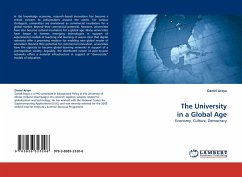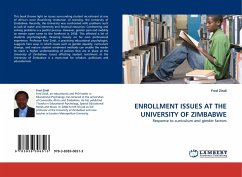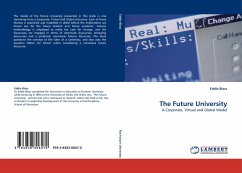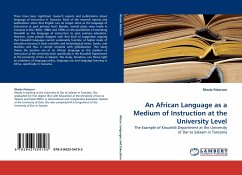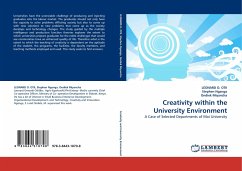In the knowledge economy, research-based innovation has become a critical concern to policymakers around the world. For various strategists, universities are envisioned as commercial incubators for a global market. Beyond their commercial potential, however, universities have also become cultural incubators for a global age. Many universities have begun to harness emerging technologies in support of experimental models of teaching and learning. It seems clear that digital networks offer a promising medium for enabling new global modes of education. Beyond their potential for commercial innovation, universities have the capacity to become global learning networks in support of a cosmopolitan society. Arguably, the distributed nature of peer-to-peer networks offers a material infrastructure in support of democratic models of education.
Bitte wählen Sie Ihr Anliegen aus.
Rechnungen
Retourenschein anfordern
Bestellstatus
Storno

